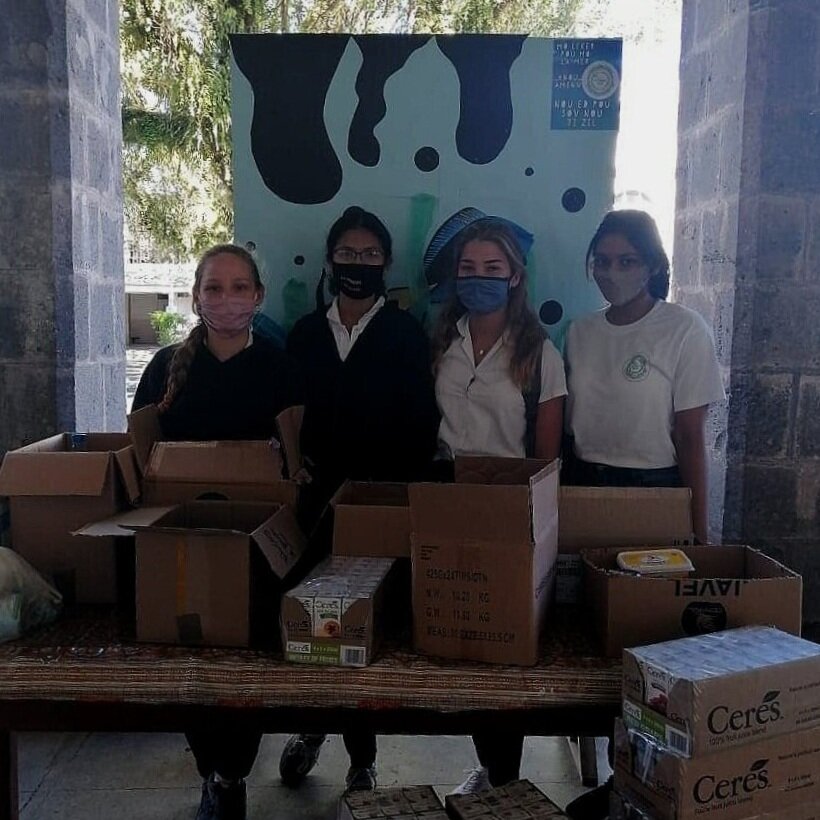When bulk carrier Wakashio broke up on the pristine coral reefs of Mauritius, it led to a major oil spill and national emergency in the country. The oil spill happened near two environmentally protected marine ecosystems and the Blue Bay Marine Park reserve, a wetland of international importance (see drone footage of the spill here).
Reef Conservation Mauritius has launched the “SOS Mangrove Programme” and has started to monitor the impact of the oil spill on mangroves. They are collaborating with local and international experts in order to implement appropriate actions for mangrove restoration and need funds to purchase equipment.
See this post for more information on how you can help.
Reef Conservation research team during their 4th survey.
The YRE Club at Loreto College Curepipe got involved to help the local fishermen around the affected areas as well as collect bottles to make anti-pollution booms that can be used to clean up the lagoons. It is amazing to see this immediate mobilization and commitment of Mauritian YRE students to help clean up after this ecological disaster!
They write:
“Well, though there was a bright sun and kind of rushed working there, it was admirable and somewhat emotional to see how many people were helping making those booms to clean up our lagoons. It was also a great experience for me personally to work with everyone there as a team and to see the mobilization of Mauritians in these times of crisis”.
According to the UN Convention on Biological Diversity, the Mauritian marine environment is home to 1,700 species including around 800 types of fish, 17 kinds of marine mammals and two species of turtles. Although the full impact of the spill is still unclear, clownfish living in the coral reefs, the endangered pink pigeon, and the mangrove systems are all examples of the wildlife at risk as a consequence of this disaster.
The winning article from the national YRE competition in Mauritius this year described the importance of protecting mangrove systems. They write that:
“mangroves are one of the main defenses in the delicate balance of the ecosystem. They play a crucial role in our ecosystem. They act as filter trapping sediments. Not only do mangroves act as a form of natural coastal defense against storms and rising waters but also their soils are highly effective carbon sinks, sequestering vast amounts of carbon”.
Read the rest of the article here.




